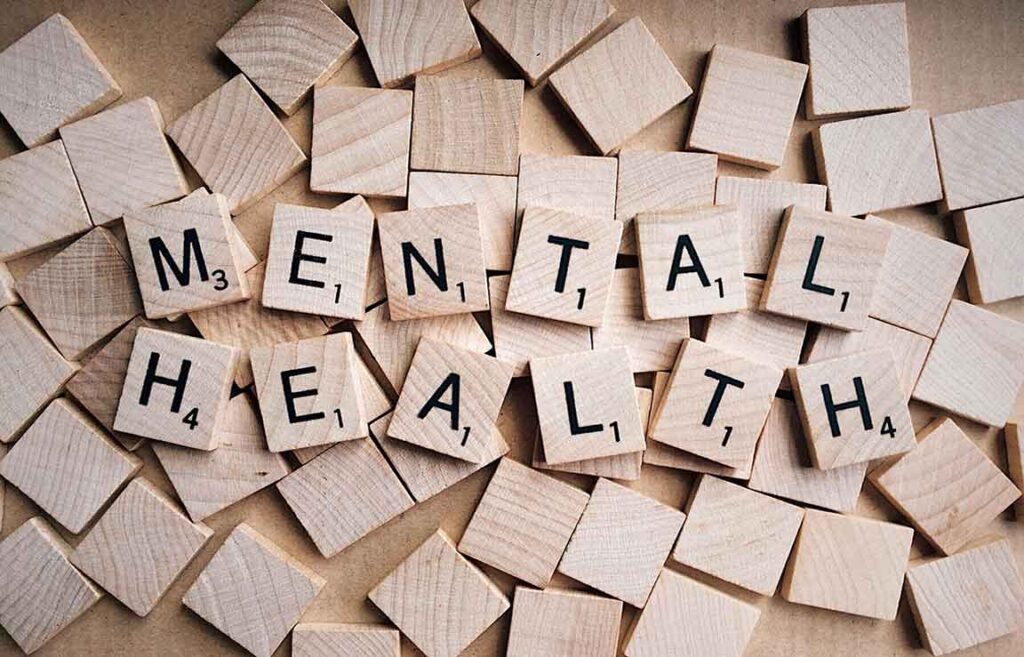By Lovlyn
Why mental health needs to be taught in schools is a topic of increasing importance in today’s society. With the rise in mental health issues among students, there is a growing need for education that focuses on mental health and emotional well-being.
In today’s society, mental health issues are becoming more prevalent than ever before. Mental health disorders affect a significant number of youths, with one in six aged 6-17 years, experiencing such disorders. Furthermore, 50% of all lifetime mental illnesses develop by age 14.
As mental health affects people of all ages and backgrounds, including children and teenagers, there is an urgent need for mental health education to be included in the school curriculum.
In this blog post, we will explore the reasons why mental health needs to be taught in schools and how it can benefit students in the long run. From reducing the stigma around mental health to improving academic performance and building resilience, there are many compelling reasons why schools should prioritize mental health education.
Understanding Mental Health
Understanding what mental health is and why it’s crucially important is necessary before delving into the reasons why mental health needs to be taught in schools.
Mental health, according to the World Health Organization, is a state of well-being in which individuals realize their capabilities, can handle life’s normal stresses, work productively, and contribute to their community.
If neglected, it can cause various problems, such as poor academic performance, social withdrawal, physical health issues, and even suicide.
Given the rise in mental health issues, particularly among young people, due to modern life pressures and social media, teaching mental health in schools is one of the most effective ways to combat the issues. It not only combats stigma and discrimination but also helps young people develop coping mechanisms at a young age.
10 Reasons Why Mental Health Needs to be Taught in Schools
While the number of reasons for teaching mental health in schools may grow over time, the following 10 reasons remain important as of today.
Increases Awareness and Reduces Stigma
Mental health stigma refers to negative attitudes and beliefs about people with mental health problems. Teaching mental health in schools is crucial to promoting awareness and reducing the stigma surrounding mental health problems, particularly in Africa.
Mental health problems are often seen as a sign of weakness or a source of shame, preventing individuals from seeking help. By educating students about mental health, we can emphasize its significance and decrease the stigma attached to it.
Promotes Positive Mental Health
Another reason why mental health needs to be taught in schools is to promote positive mental health. Just as we teach students about physical health and hygiene, we should also teach them about mental health and how to maintain good mental health. This includes teaching students about stress management, coping skills, and self-care strategies.
Prevents Mental Health Problems
Teaching about mental health in schools can serve as a preventative measure against the development of mental health problems.
Equipping students with the necessary tools and resources to manage their mental health can lessen the likelihood of issues emerging in the future. This may entail educating students on healthy relationships, self-worth, and how to recognize symptoms of mental health problems.
Promotes early identification and treatment of mental health concerns
Educating young individuals about mental health can aid in their ability to identify the early signs and symptoms of mental health issues. It is crucial to detect and treat mental health concerns early on to prevent them from worsening into more severe problems.
By offering mental health information to students, educational institutions can equip them with the necessary knowledge and resources to recognize and seek assistance when they or someone they know encounters a mental health problem.
 Subscribe to my email newsletter to get a free mental health goal worksheet
Subscribe to my email newsletter to get a free mental health goal worksheet
Improves Academic Performance
The academic performance of students can be greatly affected by their mental health. When students face mental health challenges, they may find it hard to focus, finish assignments, and participate in class.
Introducing mental health education in schools can empower students with the necessary tools to manage their mental health effectively, which can ultimately enhance their academic performance.
Enhances social and emotional development
Social and emotional development are essential aspects of a child’s development. Mental health problems can also affect an individual’s social skills. Students with mental health problems may experience social isolation, difficulty making friends, and poor communication skills.
By teaching young people about mental health, schools can help them to develop their social and emotional skills. Students who understand mental health are better equipped to understand their emotions and the emotions of others. They can also develop greater empathy and compassion towards others, which can lead to stronger social connections and relationships.
Improves Physical Wellbeing
Considering that mental health can significantly impact physical health, it’s important to prioritize its care. In fact, mental health issues have been linked to a higher likelihood of developing physical health problems such as heart disease, diabetes, and obesity.
Therefore, teaching mental health in schools can not only improve students’ mental well-being but also potentially benefit their physical health by promoting healthy habits and coping mechanisms.
Provides a safe and supportive environment
Schools are ideally positioned to provide a safe and supportive environment for young people. By teaching about mental health, schools can create an environment where students feel comfortable discussing mental health concerns openly.
This can help to create a culture of support and understanding, where students feel valued and supported, regardless of their mental health concerns.

Being aware from an early age
Having awareness is crucial when it comes to handling anything, including mental health. By educating children about mental health early on, they gain essential knowledge that could prove useful to them later on in adulthood.
Mental health is something that should be on our radar from a young age, just like physical health and other significant life skills.
Provides Support and Resources
Finally, teaching mental health in schools can provide students with the support and resources they need to manage their mental health. This can include access to counselling services, peer support groups, and other resources that can help students cope with mental health issues.
Strategies for implementing mental health education in schools
Integrating mental health into the curriculum
Integrating mental health education into the school curriculum is essential to equip students with the knowledge and skills they need to maintain their mental well-being.
Mental health can also be incorporated into existing subjects such as science, health, and physical education. This can help normalize conversations around mental health. For example, in a health class, students can learn about the different types of mental illnesses, their symptoms, and ways to seek help.
Teacher Training and Professional Development
Before incorporating mental health education into the curriculum, it’s essential to ensure that teachers are adequately trained to address mental health issues in the classroom. Provide training to teachers on topics such as identifying signs of mental health issues, managing stress and anxiety, and supporting students who may be struggling with their mental health.
You might also like: Why Mental Health Awareness In Africa Is Important
Counselling and Support Services
Counselling and support services are essential strategies for implementing mental health education in schools. These services can provide students with the necessary support and resources to address their mental health needs.
By offering counselling and support services, schools can create a supportive and caring environment that prioritizes the mental health and well-being of students.
School-Wide Prevention and Intervention Strategies
School-wide prevention and intervention strategies can be an effective approach to implementing mental health education in schools. Some examples of school-wide prevention and intervention strategies include implementing a comprehensive mental health policy, providing access to mental health professionals such as counsellors or therapists, offering peer support programs, and promoting mindfulness practices.
This approach can also help to reduce the stigma around mental health issues and create a culture of openness and support within the school community.
Collaboration with Families and Communities
By collaborating with families and communities, schools can create a comprehensive approach to mental health education that supports students’ mental well-being both in and out of the classroom.
Schools can partner with community organizations such as mental health clinics, youth centres, and advocacy groups to provide additional resources and support for students. These partnerships can also help schools to connect students and families with mental health services when needed.
Funding and Resources
By securing funding and resources, schools can ensure that they have the necessary support to implement effective mental health education programs.
Some organizations specifically focus on mental health education in schools, and these grants can help fund teacher training, resources, and programs. Schools can also advocate for government funding to support mental health education initiatives.
Conclusion
Personally, the education I received during my formative years did not cover any information on mental health. My understanding of mental health and illness mostly stems from my own struggles and my interest in psychology.
This seems to be a common experience among those who are mentally aware. So, it is not surprising that there are many stigmas surrounding mental health, given the lack of education and awareness.
The mental health problems and challenges that we may have experienced due to a lack of awareness while growing up can simply be avoided by providing students with accurate information about mental health.
Schools can promote early identification and treatment of mental health concerns, reduce stigma surrounding mental health, support academic success, enhance social and emotional development, and provide a safe and supportive environment for young people.
What are your thoughts on teaching mental health in school, let us know in the comments session below!
If you enjoyed reading this blog post, I recommend checking out my other post on mental health awareness.
DISCLAIMER:
The content of this blog is not intended to be a substitute for professional medical advice, diagnosis, or treatment. It is provided for general information only.
RECOMMENDATION
If you need help or know someone who needs help with their mental health or mental illness, check out the resource page for mental health resources.













